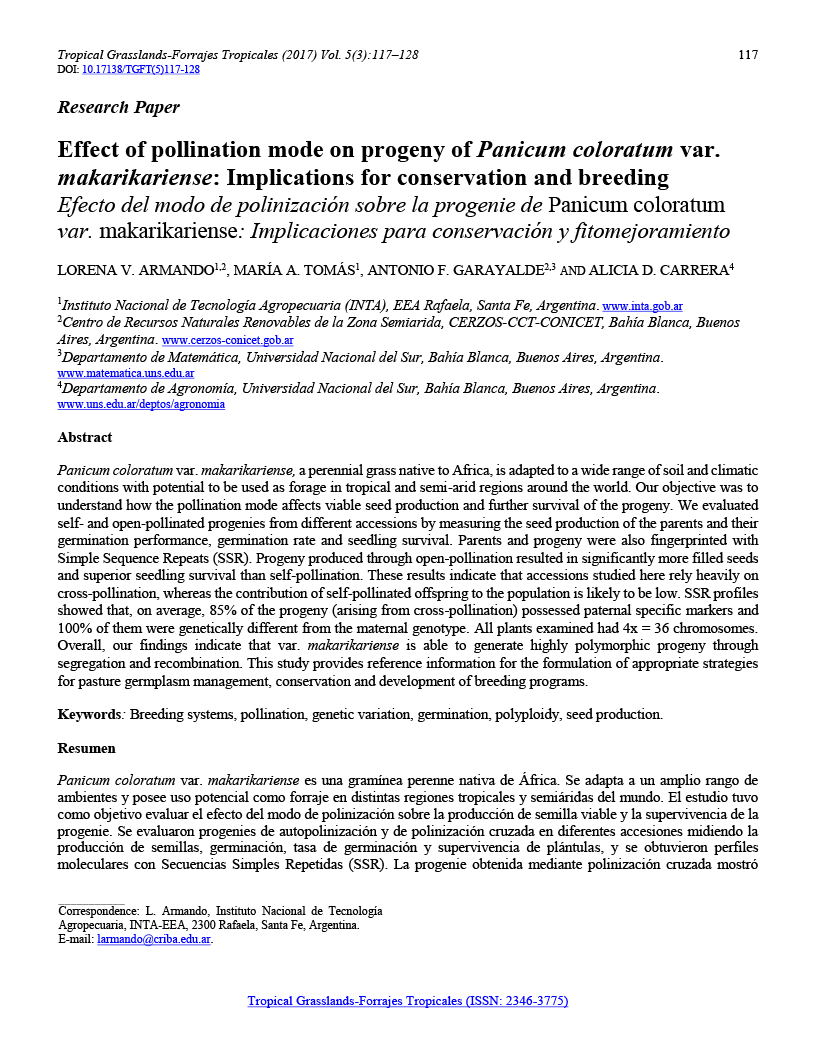Effect of pollination mode on progeny of <i>Panicum coloratum</i> var. <i>makarikariense</i>: Implications for conservation and breeding
DOI:
https://doi.org/10.17138/tgft(5)117-128Abstract
Panicum coloratum var. makarikariense, a perennial grass native to Africa, is adapted to a wide range of soil and climatic conditions with potential to be used as forage in tropical and semi-arid regions around the world. Our objective was to understand how the pollination mode affects viable seed production and further survival of the progeny. We evaluated self- and open-pollinated progenies from different accessions by measuring the seed production of the parents and their germination performance, germination rate and seedling survival. Parents and progeny were also fingerprinted with Simple Sequence Repeats (SSR). Progeny produced through open-pollination resulted in significantly more filled seeds and superior seedling survival than self-pollination. These results indicate that accessions studied here rely heavily on cross-pollination, whereas the contribution of self-pollinated offspring to the population is likely to be low. SSR profiles showed that, on average, 85% of the progeny (arising from cross-pollination) possessed paternal specific markers and 100% of them were genetically different from the maternal genotype. All plants examined had 4x = 36 chromosomes. Overall, our findings indicate that var. makarikariense is able to generate highly polymorphic progeny through segregation and recombination. This study provides reference information for the formulation of appropriate strategies for pasture germplasm management, conservation and development of breeding programs.




